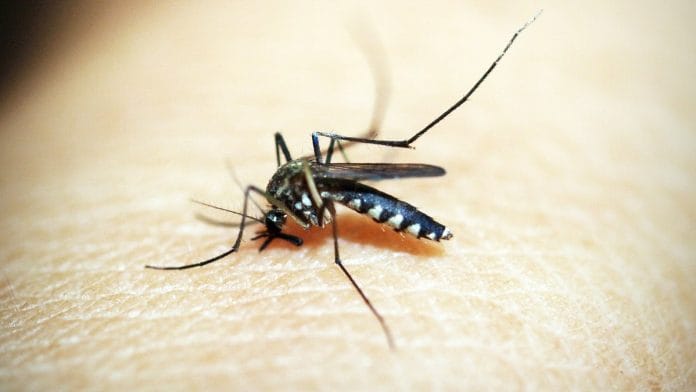New Delhi: Over the next two years, 12 African countries will receive 18 million doses of the first-ever malaria vaccine — RTS,S/AS01 — according to a statement released by the World Health Organization (WHO) Wednesday.
These 12 countries include Ghana, Kenya and Malawi, where this vaccine has already been administered to over 1.7 million children since 2019, and showed a positive response.
The immunisations in Ghana, Kenya and Malawi were done through the Malaria Vaccine Implementation Programme (MVIP), managed by the WHO and funded by Gavi, the Vaccine Alliance — a public–private global health partnership with the goal of increasing access to immunisation in poor countries — and Unitaid, a global health initiative.
Nine more countries have now been added to the list which includes Benin, Burkina Faso, Burundi, Cameroon, the Democratic Republic of the Congo, Liberia, Niger, Sierra Leone and Uganda. These will receive the vaccine for the first time as the result of a collaboration between Gavi and United Nations International Children’s Emergency Fund (UNICEF), which will also be funding them.
The vaccine doses are expected to arrive in these countries by the end of 2023, and will be rolled out by early 2024.
Malaria continues to be a major public health and development issue.
The African region has the largest malaria burden, accounting for 95 per cent of cases and 96 per cent of fatalities globally, with 234 million malaria cases and 5,93,000 deaths in 2021, with 78.9 per cent of deaths occurring in children under the age of five, according to the WHO.
The WHO is now calling this vaccine a “breakthrough”.
“Nearly every minute, a child under 5 years old dies of malaria,” an article on UNICEF’s website quotes Ephrem T. Lemango, Associate Director of Immunisation, as saying.
So far, the immunisations in Ghana, Kenya and Malawi have been shown to be effective and safe. Results have shown a substantial decrease in severe malaria symptoms and a decrease in child deaths. In total, 28 African countries have expressed interest in receiving this vaccine.
According to the WHO, the greatest difficulty faced by malaria-endemic African countries is insufficient funding for malaria prevention and treatment programmes for persons at risk. As a result, certain communities or groups are unable to obtain necessary or preventive treatment.
Moreover, mosquitoes that spread malaria have developed resistance to certain earlier pesticides in some regions of Sub-Saharan Africa.
Thabani Maphosa, Managing Director of Country Programmes Delivery at Gavi has said: “This vaccine has the potential to be very impactful in the fight against malaria, and when broadly deployed alongside other interventions, it can prevent tens of thousands of future deaths every year.”
In India, too, malaria continues to be a public health concern, accounting for 79 per cent of all malaria cases in Southeast Asia, according to a 2022 report by the WHO.
However, India, too, is stepping up efforts to curb the disease as it is set to become a notifiable disease in the country, say media reports. This essentially means that it will be required by law to report malaria cases to government authorities.
India witnessed an 85.1 per cent decline in malaria cases and 83.3 per cent decline in deaths during 2015-2022, said Union Health Minister Mansukh Mandaviya reportedly.
At present, there seems to be no vaccine on the horizon for India.
(Edited by Anumeha Saxena)
Also Read: Covid, pollution could have raised sudden cardiac arrests by 2-3 times, says top cardiologist






